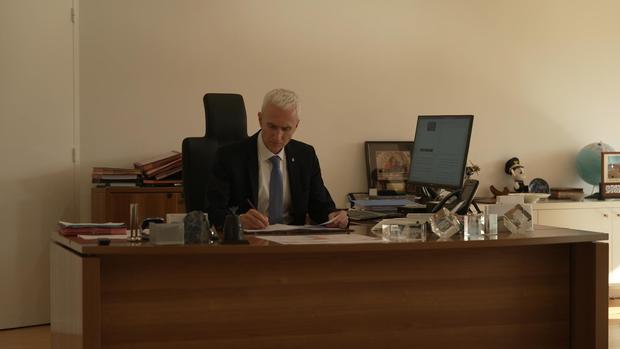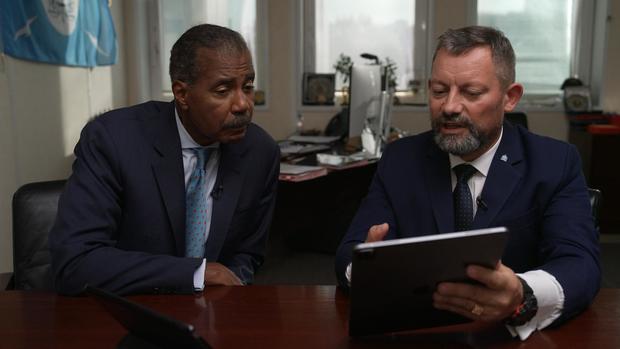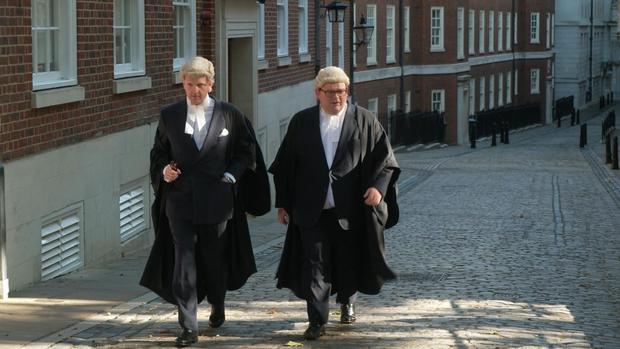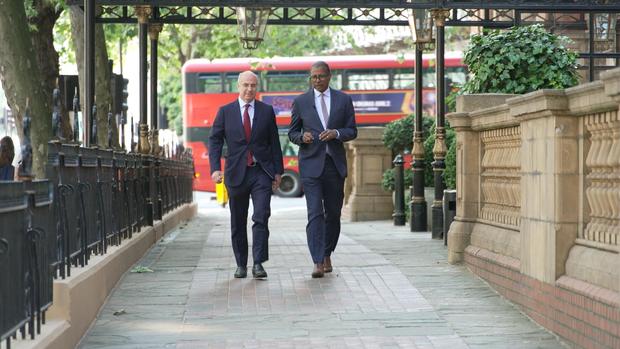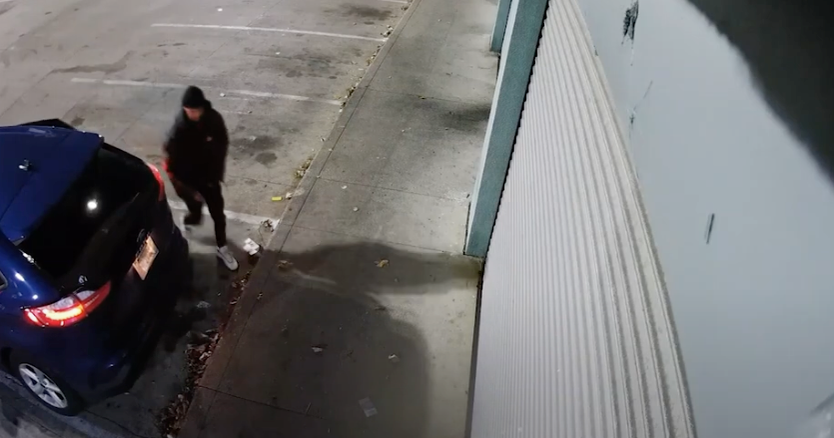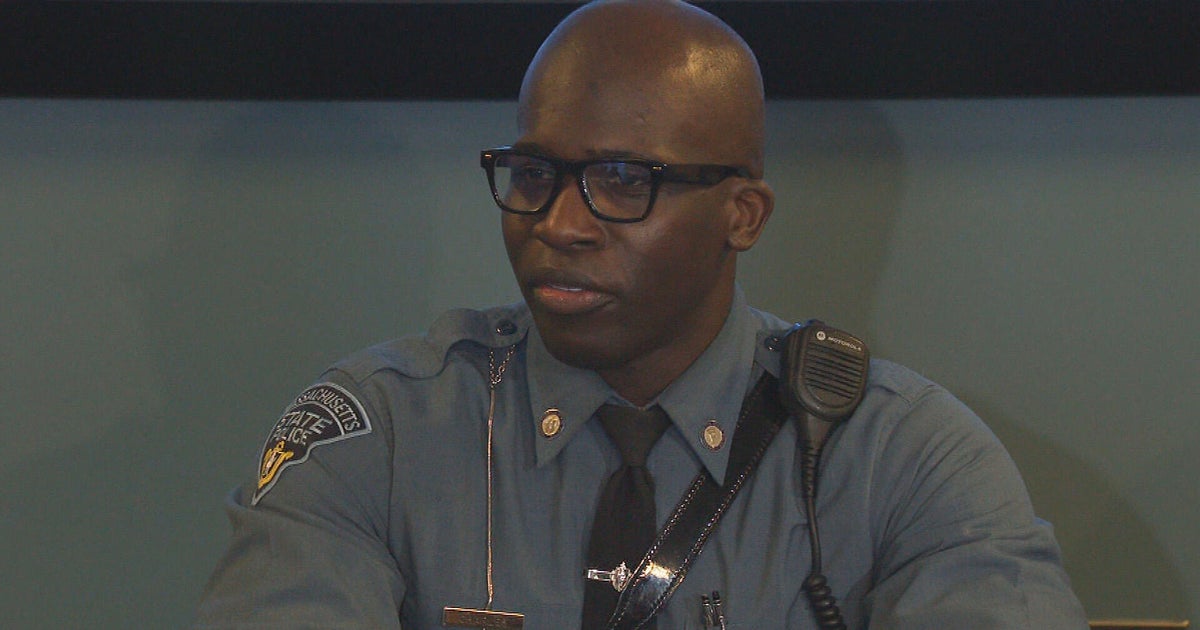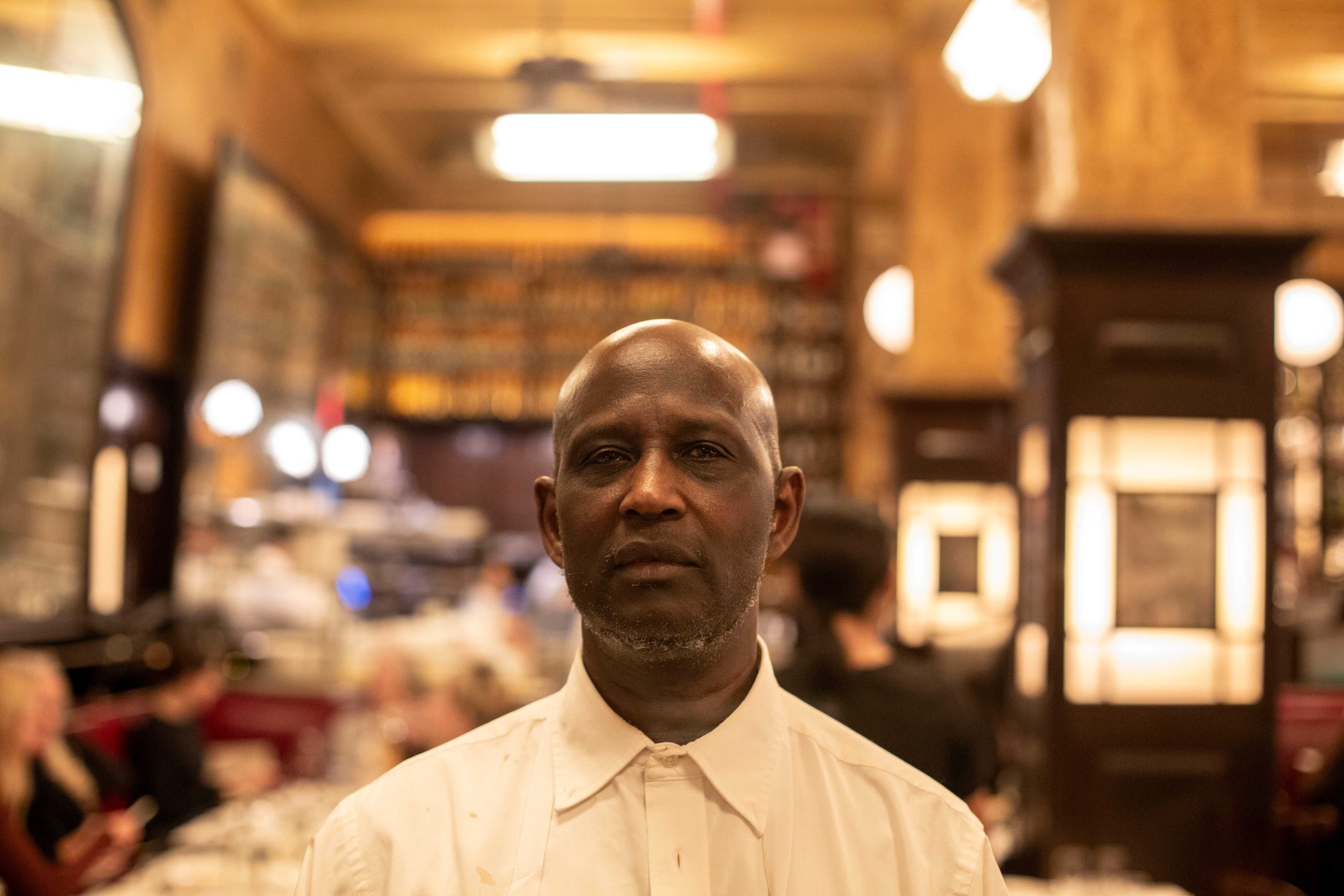Interpol navigates tricky role of assisting police cooperation among 196 member countries
This is an updated version of a story first published on Jan. 28, 2024. The original video can be viewed here.
If you're a fan of crime novels and movies, you've probably heard of Interpol. The international police organization was started 100 years ago when 20 countries, including the U.S., came together to fight international crime. Today it has 196 members… connecting the New York Police Department… Scotland Yard… police in Moscow, Mumbai, Manila. But as we first reported in January, for all its good work, Interpol has been accused of doing the "dirty work" of some of its more repressive members. Russia, for one, has used Interpol to track down people who have run afoul of President Vladimir Putin. Last year, we visited Interpol in Lyon, France last fall, and found an institution trying to navigate the treacherous path between policing and politics.
On the banks of the Rhône River, by a tranquil city park, sits the highly-secure global headquarters of Interpol. For the past decade, it's been led by Jürgen Stock, a former vice president of the German federal police.
Jürgen Stock: The purpose of Interpol is still the same: Connecting police for a safer world.
As Interpol's secretary general, Stock manages operations in Lyon and regional offices on five continents. Nine hundred employees work at the Lyon headquarters. Many are police officers on loan from member countries chosen for their expertise. They don't carry guns or make arrests -- but rather collect and share information with law enforcement agencies around the globe.
Interpol also has bureaus in each member country, including one in Washington, D.C. managed by the Departments of Justice and Homeland Security.
Bill Whitaker: So what is the main mission of Interpol?
Jürgen Stock: I would describe it as an information broker. We collect. We invite member countries to share information. We do analysis. We enrich the information. So, Interpol's information is leading to arrests of high-level criminals: murderers, drug traffickers, those who are abusing children all around the world. Every single day, that happens.
Last year, Interpol coordinated a crackdown on human trafficking and prostitution — Operation Global Chain — that led to 212 arrests in 22 countries and the release of more than 1,400 victims forced into criminality. It's been going after one of the world's most powerful crime organizations, Italy-based 'Ndrangheta. Thanks to Interpol, the second most wanted man in Italy, Rocco Morabito, was arrested in Brazil after 23 years on the run.
Cyril Gout: We were able to identify him through images that were shared that allowed us to, to be sure it was the guy.
Bill Whitaker: Tattoos.
Cyril Gout: Tattoos.
Cyril Gout, a forensic expert from the French National Police, oversees 19 massive databases, which are queried 20 million times a day. They are a compendium of crime: piracy, fugitives, illicit firearms, stolen travel documents...
Cyril Gout: My role is to make this information available to the end users.
Bill Whitaker: Your members?
Cyril Gout: The member countries of Interpol. But, for me, the customers, the end users, these are the police officers who wants to arrest those major criminals and providing them with actionable information everywhere around the world.
Interpol has a number of ways to alert its members, including a yellow notice for missing persons … a black notice for unidentified bodies … perhaps most important - the red notice – a closely guarded list of 74,000 of the world's most wanted fugitives with the suspects' name, picture, fingerprints, details of the alleged crime and the country seeking the arrest.
Jürgen Stock: The red notice is not an international arrest warrant. That is also very often misunderstood.
Bill Whitaker: How would you describe it? It seems like it's a digital wanted poster?
Jürgen Stock: Yes. It's an alert that we are disseminating that somebody is wanted by a member country.
Each notice is vetted by a task force Secretary General Stock created to make sure it doesn't violate rules forbidding the use of Interpol for political, religious or racial persecution. But the vetting is not foolproof.
Some of Interpol's more repressive members take advantage of red notices, using fabricated charges to locate, detain and extradite people they want to get their hands on, like political dissidents, or innocent people who've merely displeased powerful officials.
Rhys Davies: Like any information sharing system, the information that you get out is only as good as the information that you put in.
Rhys Davies, on the left, and Ben Keith, are barristers – British lawyers – who help people accused of crimes to navigate Interpol's complex bureaucracy.
Ben Keith: Our clients come to us and say, "We've been accused in a particular state of a criminal offense, which has been fabricated for political reasons. And Interpol's just taken this at face value, issued a red notice."
Both concede Interpol does a lot of good, despite a yearly budget of $170 million, which is about the size of the Omaha Police Department.
Ben Keith: Their constitution says that they are meant to believe their member states. And so when a member state, Russia, China, Turkey, whose rule of law is often nonexistent, say to them a particular person is wanted for a criminal offense, they are bound by their constitution to believe them.
Bill Whitaker: Does Interpol view all the information that comes out of all of them as equal?
Ben Keith: This is one of our main frustrations, is that Interpol don't penalize countries properly.
Rhys Davies: They want everyone in their club.
Ben Keith: They want everybody in the club. When a country's clearly, egregiously breaching the rules and manipulating the system on a gross scale, they don't suspend them. They've not suspended Russia. And so Russia is still an active member of Interpol.
Russia accounts for nearly half of the red notices Interpol makes public. According to a Russian police official, its Interpol Bureau in Moscow helped arrest and extradite more than 100 criminals in 2021... and in 2022 helped nab the founder of the world's largest darknet criminal marketplace, called Hydra. But some of the information Russia gives Interpol is suspect. Members of Congress, human rights groups, and the European Union have labeled Russia a serial abuser of red notices.
Rhys Davies: So Russia is widely viewed as being fairly brazen in its attempt to manipulate the system. The famous example that we often talk about is Bill Browder.
Bill Browder is a London-based, American-born financier. He made his fortune in Russia, but has spent the last 11 years on the run from President Vladimir Putin after he and his lawyer, Sergei Magnitsky, exposed corruption by Russian government officials. Magnitsky was arrested and died after being beaten in a Moscow prison. Browder was convicted in absentia on suspect fraud charges. The Kremlin turned to Interpol to bring him in.
Bill Whitaker: So how many times, by your count, has Russia tried to arrest you by way of Interpol?
Bill Browder: Eight times. I must hold the Guinness Book of World Records for the number of times they've tried to abuse Interpol.
His closest call came in 2018, when he was visiting Spain.
Bill Browder: I open the door of the hotel and outside the door just about to knock is the manager of the hotel and two uniformed officers from the Spanish police. I pull out my passport. I hand it to the, um, one of the two police officers. And he said, "You're under arrest." And I said, "What for?" And he said, "Interpol. Russia."
The hotel manager told him to collect his things from the bedroom. once out of sight, Browder grabbed his phone and sent out this tweet:
Bill Browder: At the time, I had about 100,000 followers. And I tweeted out, "Urgent. Being arrested in Madrid, Spain right now."
Bill Whitaker: That was quick thinking.
Bill Browder: This is not the first time I had this worry. They've been chasing me with Interpol for a long time. And so I'm sitting in the back of the police car, and because they hadn't taken away my phone I took a picture of the back of their heads.
He sent this picture in a second urgent tweet: "in the back of the Spanish police car going to the station on the Russian arrest warrant..."
Bill Whitaker: What were you hoping to accomplish?
Bill Browder: I'm hoping to wake the whole world up to the fact that I'm being arrested. I didn't want to be slipped into the back of a, you know, Russian jet and sent off without anyone knowing where I was.
Bill Whitaker: What did you think was happening or was going to happen?
Bill Browder: If I'm sent to Russia, I would be killed. No question about it.
While Browder stayed locked in a holding cell, his tweets went around the world.
Bill Browder: The chief of police comes back with a translator and says "We've just gotten off the phone with Interpol General Secretariat in Lyon. The warrant is no longer valid. You're free to go."
Bill Whitaker: Wow. As a result of your tweets?
Bill Browder: As a result of the tweets.
Bill Whitaker: Are you fearful that this could happen again?
Bill Browder: Every time I cross a border, my heart starts beating a little bit faster.
We asked Jürgen Stock why, after all this, Russia hasn't been suspended from Interpol… especially considering the U.N. is investigating Russia for war crimes in Ukraine.
Bill Whitaker: I'm just trying to understand how a country that is being investigated for mass murder can be a member in good standing with Interpol.
Jürgen Stock: Interpol introduced some measures when the conflict started to avoid any political abuse of our systems. But we also decided to keep let's say the channels of information open.
Russia is hardly the only country to use Interpol to do its dirty work. Bahrain, for example, used Interpol to nab a professional soccer player, an outspoken critic of the government, at the Bangkok airport in 2018. He spent two-and-a-half months in a Thai prison. China used a red notice to arrest this Chinese Uyghur activist in Morocco in 2021. He remains in prison awaiting extradition. And Qatar issued a red notice for this Scottish engineer in 2022 over a disputed $5,000 bank loan. He spent two months in an Iraqi prison. All of these red notices were eventually rescinded, but not before lives were upended.
Bill Whitaker: I don't know how to characterize the people who get caught up in this. Are they "collateral damage?"
Jürgen Stock: No, I would never call that collateral damage. And we are investing all we can to ensure that every piece of information in our databases are compliant with our rules and regulations.
Bill Whitaker: But you know, and we have heard of incidents where people are languishing in jail, because of erroneous information that was sent out by Interpol.
Jürgen Stock: I'm not saying that the system is perfect. We see wrong decisions on a national level. And we have seen wrong decisions also in Interpol. That is, that is correct, a small number of cases.
Interpol admits in 2022, 304 of nearly 24,000 wanted person alerts were found to violate its rules and were eventually denied or deleted. The organization declined to share which countries were the worst offenders.
Bill Whitaker: There are well documented cases against Russia, China, Turkey, United Arab Emirates for repeatedly abusing the Interpol notices. Why not name and shame these countries?
Jürgen Stock: Because we believe this is not in the interest of international police cooperation. You need to have a platform where information is being collected from different parts of the world where criminal groups are operating. We want to provide a channel, even between states that have diplomatic difficulties, or even are in conflict. Our decision is not to police a member country in terms of their human rights agenda. That's not our role as a technical police organization.
Rhys Davies: That's not justice though. It's not justice. Yeah, we get it right most of the time.
British barristers Rhys Davies and Ben Keith say if Interpol is to survive another 100 years, it must learn to police itself.
Ben Keith: We're concerned about the rule of law and human rights, and Interpol are concerned about trying to catch people who are allegedly criminals. A lot of innocent people get caught up in the middle. It feels a bit like that's the sort of price they're prepared to pay for catching the bad guys. And we think that the price that is paid is far too high.
Produced by Graham Messick and Jack Weingart. Broadcast associate, Mariah B. Campbell. Edited by Joe Schanzer.
Editor's note:
In our report, British lawyer Ben Keith told Bill Whitaker that Interpol's "constitution says that they are meant to believe their member states." Afterward, an Interpol spokesperson wrote to say the story was "generally well-balanced" but "there is nothing in INTERPOL's Constitution which says the Organization is 'meant to believe their member states.'" Keith stands by his interpretation, and adds that the first clause of Article 128 of Interpol's Rules on the Processing of Data states: "Data are, a priori, considered to be accurate and relevant when entered by a National Central Bureau, a national entity or an international entity into the INTERPOL Information System and recorded in a police database of the Organization."

